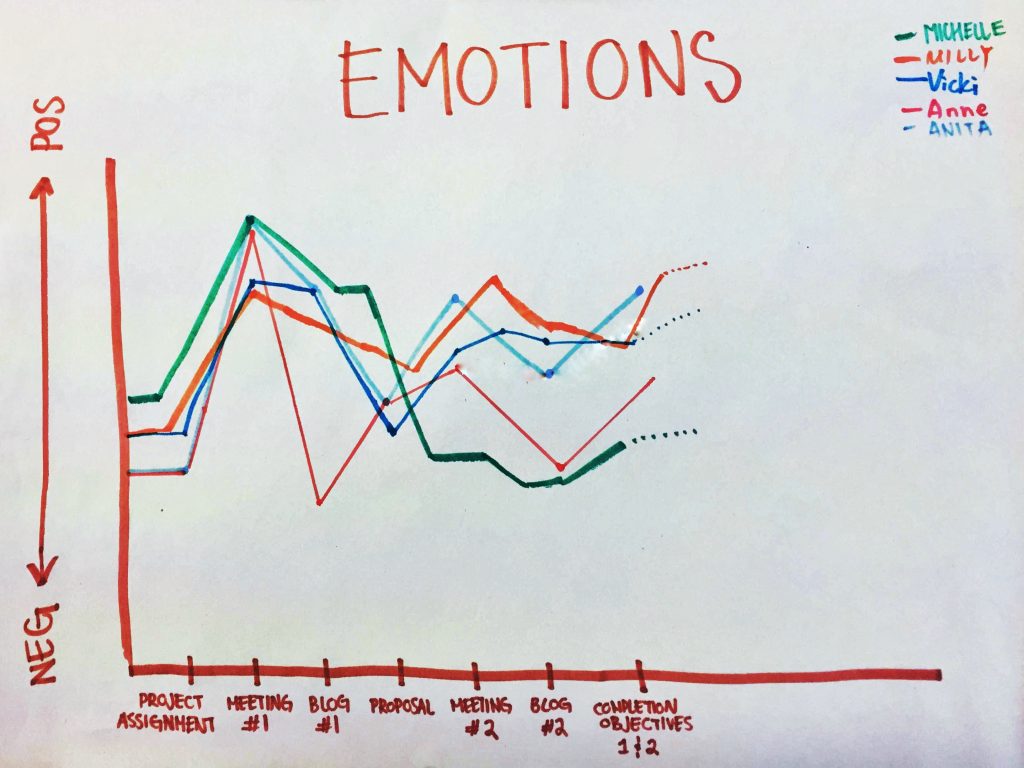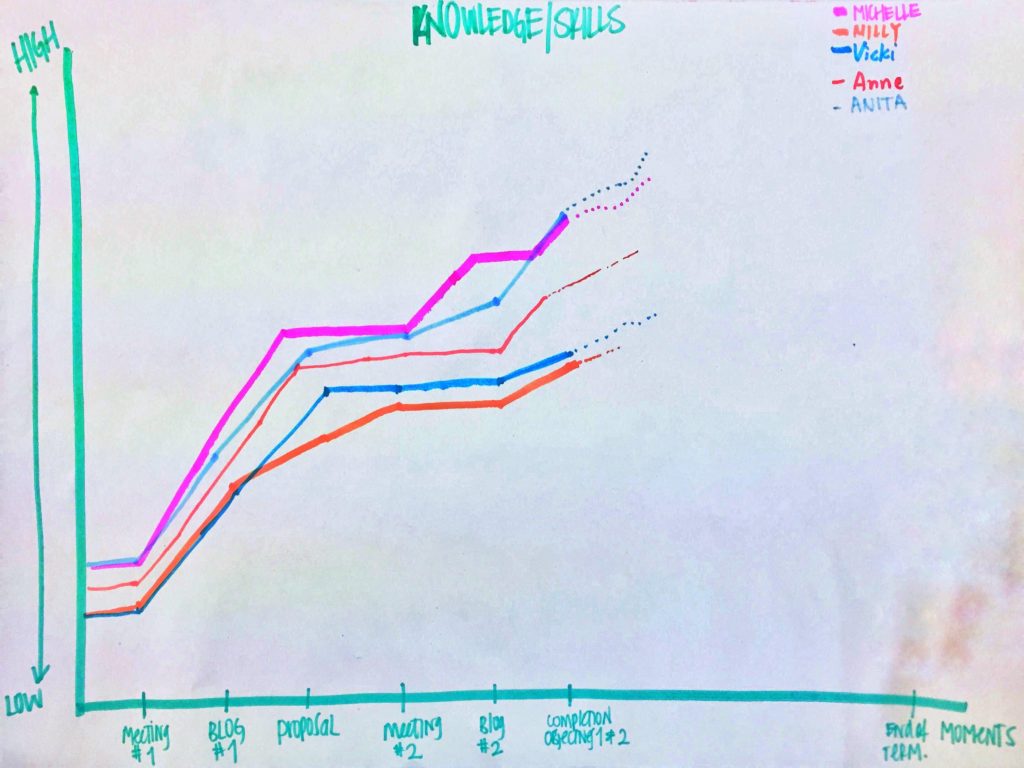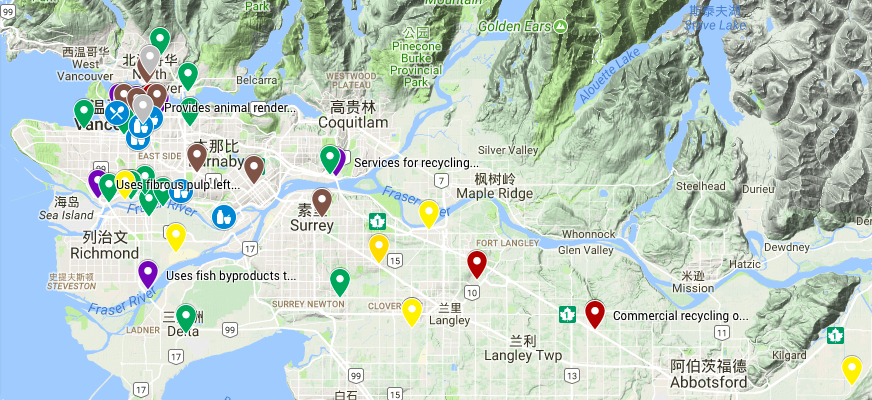The end of the term is quickly approaching. There are couple weeks remaining before our final presentation and the closing of this project. This week, we have all gotten more excited about seeing everything come together, and we are feeling confident moving forward towards producing quality outcomes.
Thanks for following this journey!
Weekly Objectives and Achievements
| Week | Objectives | Achievements |
| 9 | · Complete Objectives 1 and 2 by March 5th
· Present them to our community partner and TA · Correct Objectives 1 and 2 based on the feedback given by our community partner and TA · Begin work on Objective 3 and determine the best way to incorporate findings from Objectives 1 and 2 |
· Objective 1 and 2 are 80% complete. They will be finalized according to edits and feedback from the community partner.
· Presented objectives to Jessica on March 9th, due to the rescheduling of the meeting. · Improved Blog 2 by incorporating TA’s feedback. · Completed Blog 3. |
Upcoming Objectives and Achievement Strategies
| Week | Objectives | Strategies |
| 10 | · Continue working on Objective 3
· Use session notes to ensure our infographic accurately presents our findings for Objective 1 |
· Do research online, make sure references are from credible sources
· Use an online graphic tool to visualize and correct our infographic |
| 11 | · Complete Objective 3 by March 19th
· Present all outcomes to our community partner and TA for review · Finalize project and make any necessary corrections |
· Use Google Doc to complete objective 3 collectively
· Revise our work based on comments from TA and community partner |
| 12 | · Prepare for project presentation – poster printing and elevator pitch
· Present our project and engage the audience |
· Use Piktochart to design the infographic
· Practice at least 3 times before presenting · Divide our group into 2 sub-groups: one presents our work and the other one visits other groups and poses questions |
| 13 | · Generate project report to be submitted to our community partner and course instructors by April 8th | · Use Google Doc to generate the report collectively
· Proofread our report |
Moment of Significant Change


It was very interesting and comforting to see that the variations in our emotions and skills presented a similar trend throughout the course of our project. Visualizing these patterns through graphics has allowed us to engage in meaningful discussions about moments of significance. Even though we may have experienced emotions and skills in very different ways, we have taken on a valuable journey together.
When our project was first assigned, we were all very excited to meet with our community partner, Jessica, in downtown Vancouver on Jan 22nd. Our project will work towards reducing food waste in the Lower Mainland. We learned about the heartbreaking scale of food waste and the lack of effective re-distributing frameworks present in the food system. Initially, when we started to work on the first blog posting and the proposal during the 4th and 5th week, we were intimidated by the scope of the project and time constraints and felt unsure how to approach the tasks. That said, with the help of our teaching assistant and through communication with our community partner, we were able to build attainable objectives. We are working confidently and collaboratively towards a common goal: creating a useful toolkit for food businesses wanting to re-distribute excess food.

The skills and knowledge of all our group mates have been significantly improved from week 5, through our research on the topic of Food Waste. Milly and Anne focused on doing an environmental scan through online research and created an infographic which highlights the scale of food wastage in each stage of the food supply chain. Michelle, Vicki, and Anita used an online tool to map out food recovery businesses in the Lower Mainland and categorized them for easy navigation. We also improved our ability to write clear and concise proposals and group blogs. We project that our skills and knowledge will continue to grow until the end of the project with the creation of our final outcome.
Reflection
This project has significantly enhanced our knowledge of food waste recovery in the Lower Mainland and has inspired us to think critically about our own consumption habits. We have improved our research and communication skills which are important tools that will be useful for future work. Participating in this graph workshop allowed us to reflect back and see that working together has enabled us to achieve so much and work towards making changes in our local food system. We are all very excited to complete our project with our community partner and present the interesting finding we have made by working together.
Michelle: This project has been a rollercoaster ride for me. So many ups and downs, so much uncertainty and lack of confidence in being able to deliver expected outcomes. However, as I write this, I am much more confident and excited about our project. We just had a meeting with our community partner, Jessica, and presented her our completed objectives 1 and 2. It is all coming together and I cannot wait to see the final outcome.
Milly: I was super excited to get a touch on economic analysis because it has never appeared in my courses before. Working with community members on a real-world issue is also a challenging project. I so soon became frustrated by the scope of our project and how much we have to complete by each checkpoint. I continued to progress in lots of knowledge and skills such as searching for information and writing proposal and blog posts. At the same time, I continued to be depressed because of unpredictability on what will be the next. Luckily, with the help of our group members and with the communications with TA and Jessica, I built up more confidence with our project. I hope this confidence can exist until we finish our project and present to the world.
Anita: When our project was first assigned, I was quite excited to be working towards reducing food waste in the Lower Mainland. After our first meeting with our community partner, I felt very intimidated by the scope of our project and felt as if I lacked the skills to complete our objectives in time. Working on our objectives, I feel as if I have gained many new skills such as mapping and research techniques. I am also more confident in working in a professional setting. Whenever I felt unsure and lost within our project, communicating with my group mates, TA and community partner really helped me regain my confidence.
Anne: Food Mesh was my first choice when we were indicating our preference for community partner we are going to work with this term. Last summer I did an internship on a farm and was shocked by how serious food wasting is even on the farming stage. Before the first meeting, I was excited to know more facts about food wasting and ready to do much research about it. During the first meeting, the fact present by our community partner is shocking and heartbreaking. Millions of tons of healthy and edible food were wasted every year because industries don’t know where to donate their excess food and charity organizations don’t have access to ask companies because they don’t know who to contact to and when will companies have excess food. During the first blog writing, I felt a bit confused because based on the objectives we set, the range we had was too wide that I don’t know where to start. Later on during the proposal writing and the second meeting, with the help of Jessica( out community partner) and our teaching assistant, we gradually know the aspects to start our research on and start to make progress. However, during our research, we found data of food wasting given by the government is limited which made the progress get slow again. We tried to make our data source as reliable as possible but a lot of time we have to use secondary resources. As the term passing by, my research skill got improved and successfully finished the first two objectives with my teammates.
Vicki: Our project is a really interesting and challenging one. When I was informed to be a part of this group, I was excited and looked forward to working with the other four lovely girls and our community partner, Jessica, who is experienced in this area. However, I had no idea on what to do and how to start this. There are lots of things to do in the limited time frame, so I started to feel confused and depressed. Jessica and our TA helped us a lot on how to frame and break down the whole work and I felt confident in the power of our fantastic group. So far, I have learned lots of useful skills such as blog posting and proposal writing. In addition, my group partners helped me a lot. Our first 2 objectives have almost done. I believe that we could complete this project successfully with all our efforts.
This project encounters the discourse that food security can solve issues of food security. It is easy for us to assume and make the linkages between surplus food and its ability to feed those who are food insecure. Food redistribution could potentially provide an other source of affordable and nutritious food, but it cannot address food insecurity. As we’ve been explore in our LFS 350 classes, Food security is a complex issue. As pointed out by many studies, food quality and quantity was mainly due to low incomes (Health Canada, 2017). It would be, therefore, wrong to frame food waste redistribution as the solution to this issue.
Strategies for ‘The Graceful Dismount’
Our project is now moving into its final stages, and we have only four weeks remaining to bring everything together. Our journey for this project has not been linear, but we hope that the graphs will continue with an upward sloping trend for our skills and emotions in this last month. We have brainstormed some strategies to deliver comprehensive and successful outcomes.
We will maintain strong communication between ourselves and with Jessica by holding an online or in-person meeting every week. We will collectively decide on how to present and format our infographic and map, as well as what information to display to best represent our findings. As Shulman (2005) said, it is an obligation for us to learn from experiences whenever we encounter uncertainties. However, a certain type of organizational and personal support is needed to conduct experience-based actions (Böhle, 2016). We will also follow feedback given by our TA and community partner to improve our blog postings, outcomes and information to be presented. In the coming weeks, we will continue adding information and editing Objectives 1 and 2 and begin Objective 3 by combining our findings and building a final resource toolkit.
After the completion of all project objectives and the presentation infographic, we will start to prepare and practice for our poster presentation. With four weeks to go, we will stick to our deadlines and timetable to ensure that each part has been completed. This will allow us the keep our work organized and focused. Through our individual and group efforts, we hope to compile our work into something comprehensive and useful for developments in food waste management.
References
Böhle, F. (2016). A new orientation to deal with uncertainty. International journal of project management, 34 (7), 1384-1392. Retrieved from http://www.sciencedirect.com.ezproxy.library.ubc.ca/science/article/pii/S0263786315001787
Health Canada. (2017, August 08). Household food insecurity in Canada statistics and graphics (2011 to 2012). Government of Canada. Retrieved February 24, 2018, from https://www.canada.ca/en/health-canada/services/nutrition-science-research/food-security/household-food-security-statistics-2011-2012.html
Shulman, L. S. (2005). Pedagogies of uncertainty. Liberal Education, 91(2), 18–25. Retrieved from http://files.eric.ed.gov/fulltext/EJ697350.pdf